Caché
December 2020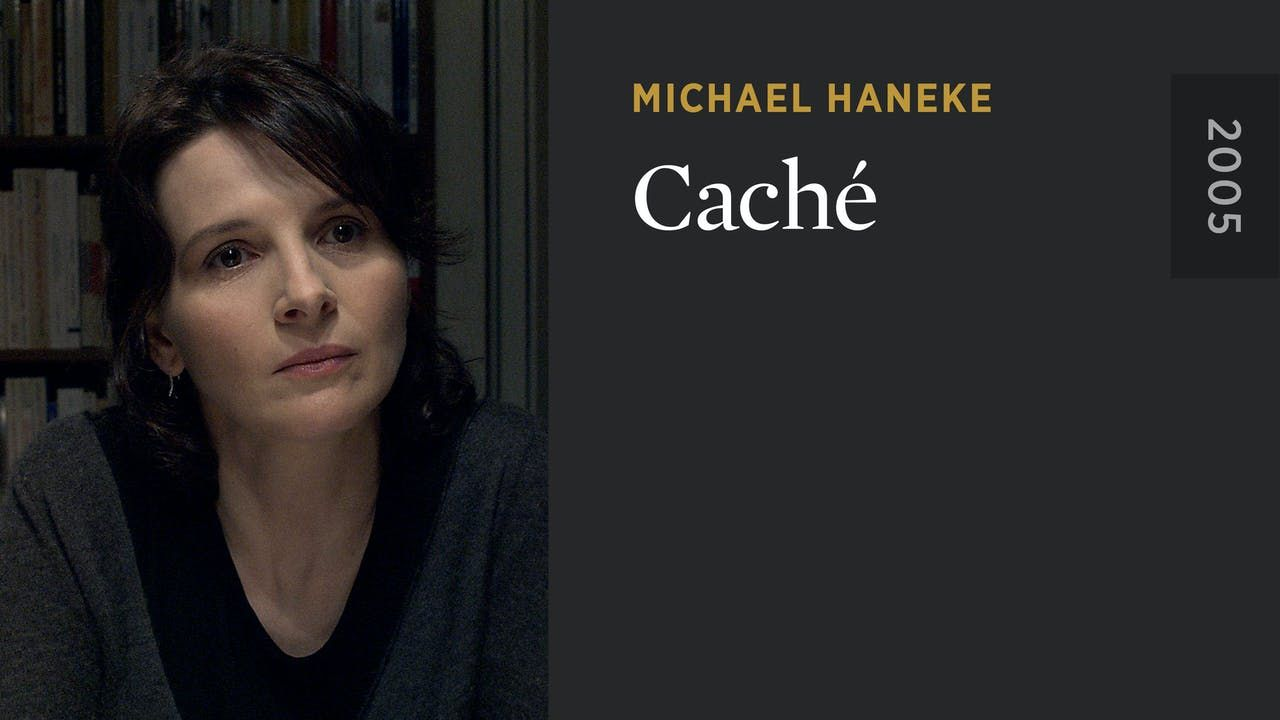
Image by The Criterion Channel
Could watching cinema implicate you in a crime?
I imagine this is the question Michael Haneke asked himself as he set about making Caché.
Table Of Contents
Synopsis
The film begins with footage of an apartment building, overlayed with out-of-sync voices; a man and a woman presumably husband and wife discussing what we see on screen.
Minutes pass and we eventually cut to the man and woman, it is revealed that the footage we were watching is being displayed on their television screen. The couple had been sent a cassette containing 2-hour-long video footage of their home.
What had we been watching?
- The couple’s television screen?
- The viewpoint of the stalker?
This is a running theme throughout the film; you get the nagging feeling that you’re peering across the shoulder of the stalker as he toys with the couple…complicit in his schemes. I and the couple assume that the stalker is a man, without any evidence to support our claim
A second tape arrives.
This time it’s wrapped in a child-like drawing of a boy vomiting blood.
The wife asks the husband if the police should be contacted. The husband hesitates. He’s hiding something.
The stalker sends more packages to; their home, their son’s school, the husband’s workplace.
A videotape of another house arrives; it’s the husband’s childhood home. The husband visits his childhood home. He confides in his mother that he’s been having nightmares about Majid. Majid must be the boy vomiting blood.
A videotape of a different apartment complex arrives, the footage strolls down a corridor and stops at a certain door.
The husband makes a trip to the apartment, he knocks on the suggested door. He meets the occupant. They’ve met before. They exchange words. He leaves. He lies to his wife about the encounter.
A videotape of the encounter arrives, a hidden camera had been recording his conversation with the occupant. He confesses to his wife.
More drama unfolds. A life is lost. Haneke ends the film without resolving the mystery. I am making a deliberate choice to not spoil the film
Redemption
After watching Caché you feel violated.
Haneke violates your expectations by refusing to resolve the mystery.
After watching Caché you feel complicit.
You watched from the stalker’s point-of-view as he toyed with the couple’s lives. At the time you didn’t think much of it; because you assumed he would be apprehended. But he wasn’t. And now you’re implicated, you partook in his perversion.
After watching Caché you feel compelled to watch again.
It’s a strange compulsion, but an irresistible one. You must return to the scene of the crime and redeem yourself. You must identify the stalker and separate yourself from him. You and he are not one and the same. You refuse to share in his perversions. You must oust him.
You’re Not Alone
After I watched Caché, I needed answers.
I discovered that a small community had sprung up around this peculiar film. Caché was debuted in 2005, and since then, people have trickled in and out of the community, bound by their compulsion to redeem themselves of complicity and oust the stalker. See “References” below for links to proof
Theories are presented. Theories are dismissed. Timestamps are presented as evidence. Screenshots are posted to illustrate the futility of the timestamps. History is brought up. Criticism is leveled. Life imitates fiction; the audience has become like the couple; analyzing video footage in search of answers.
Haneke succeeds in transcending cinema and moves into the realm of memory and human experience. People remember this film years after viewing it, the film stays with them. They carry their questions with them as they go through life, searching for answers.
My Theory
I will now present my theory about the identity of the stalker. If you haven’t watched the film yet, I would recommend that you stop reading and go watch it. The remainder of this essay won’t make much sense otherwise
But first, a word on Colonial Guilt.
From reading several articles/reviews about Caché, there seems to be a dominant theory. The theory is that Caché is a metaphor for colonialism or, imperialism and how Europeans suppress the guilt they feel towards the past.
I support the theory, there is truth to it.
But, the theory is not all-encompassing. The theory is not an excuse to unburden yourself of the mystery. I believe that the identity of the stalker does matter.
And I also believe that Haneke’s true intentions are more perverse than a commentary on colonial guilt. I believe he intented to implicate his audience in voyeurism and burden them with a sense of guilt simply for his amusement. I don’t mean to sound harsh…I’m actually sort of into it. A little bit of masochism is required to enjoy Haneke ;)
And for this reason, we must resolve the mystery, lest we let Haneke get the better of us.
The culprit is Pierre.
Why Pierre?
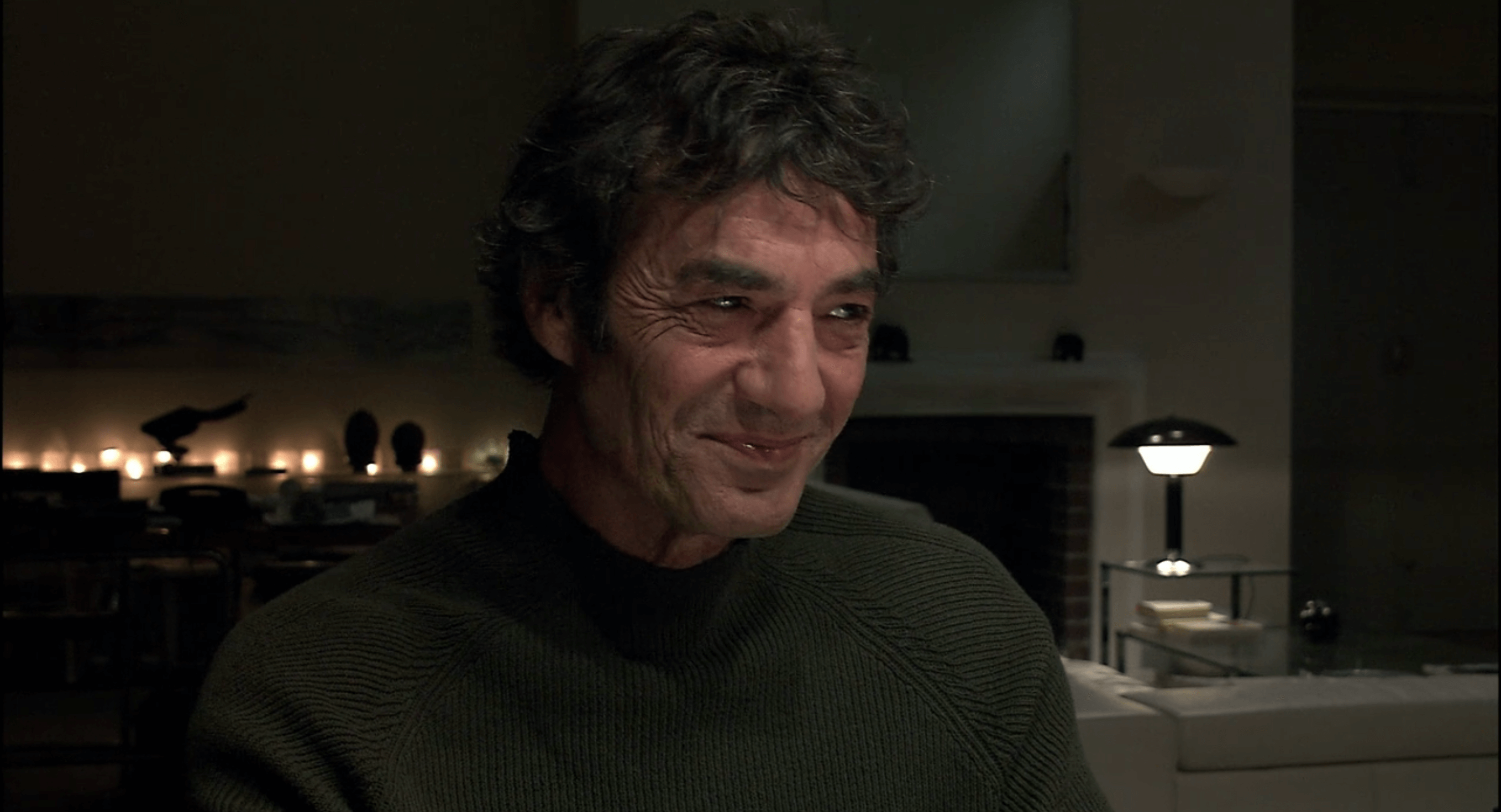
0:24:23
A heuristic I picked up from watching a lot of detective shows is to ask “Who is better off now that the damage has been done?”. Like most heuristics, it doesn’t guarantee a correct answer all the time, but it’ll get you a good enough answer quickly.
Applying this heuristic to the film, we can eliminate every character except Pierre.
Pierre, who seems to benefit from the couple’s crumbling marriage; being the shoulder for the wife to cry on while the husband goes knocking on doors in seedy apartment complexes.
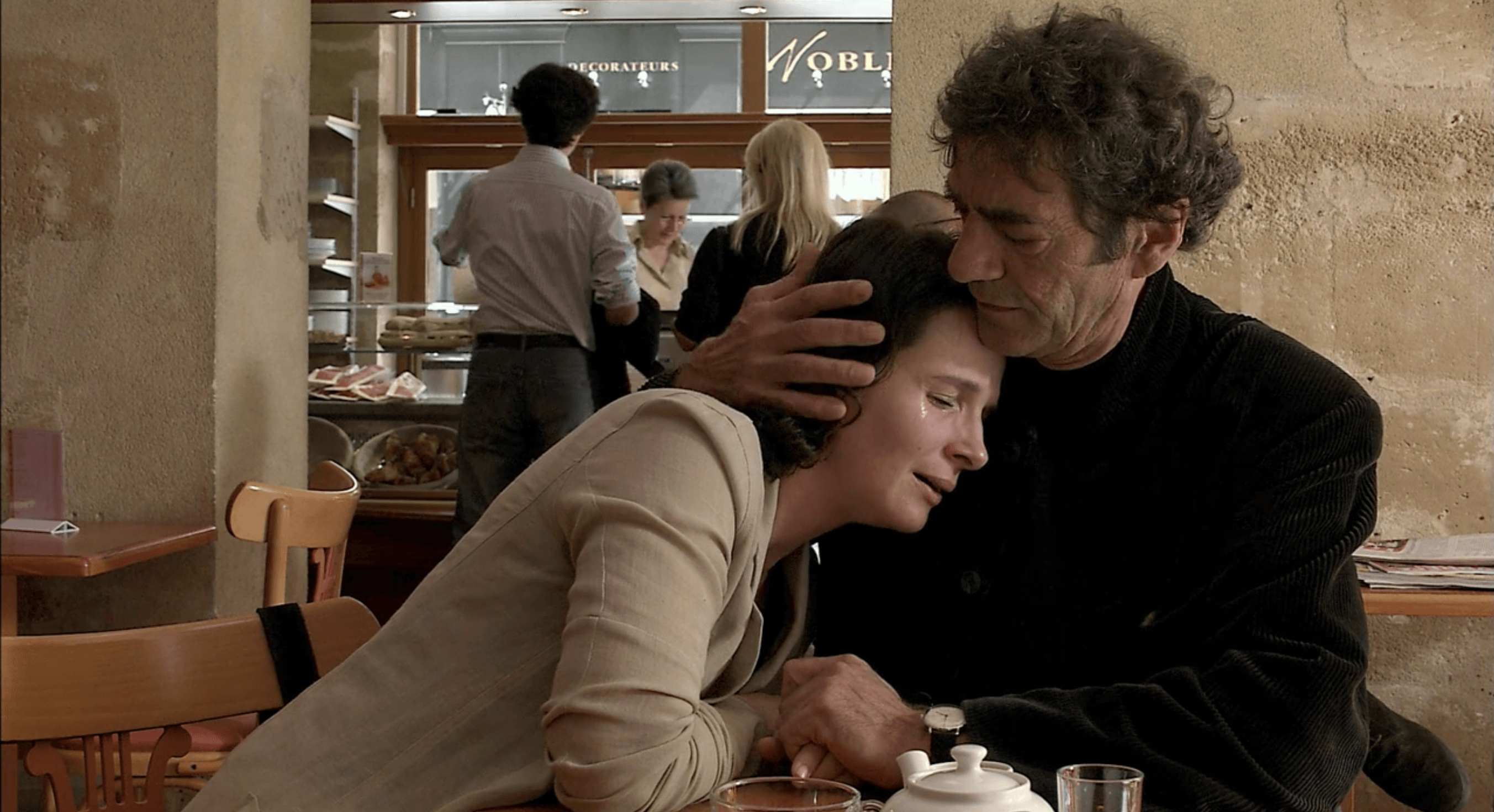
1:09:46. Pierre comforting the wife
Pierre, who the son ominously brings up out of nowhere.
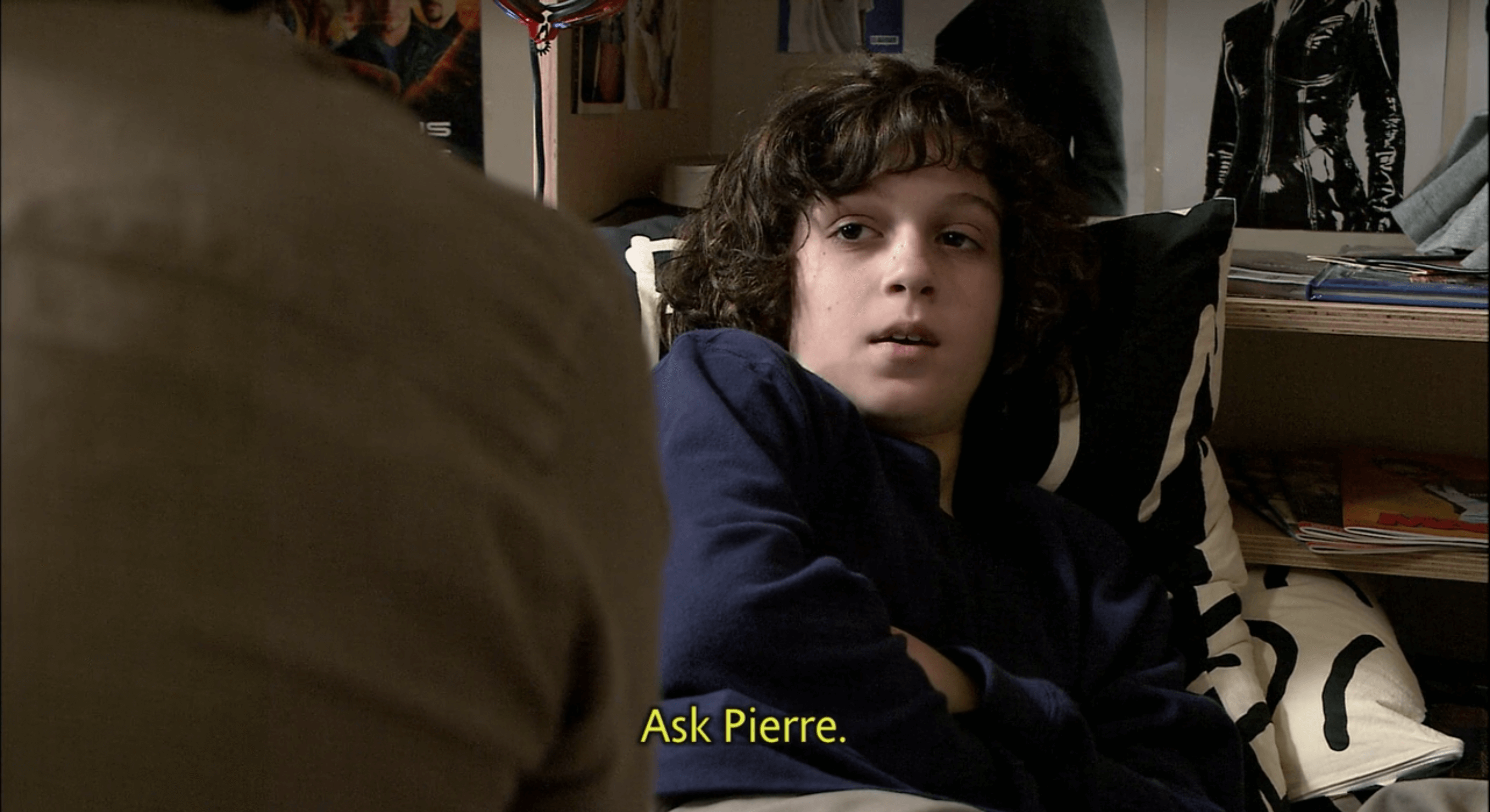
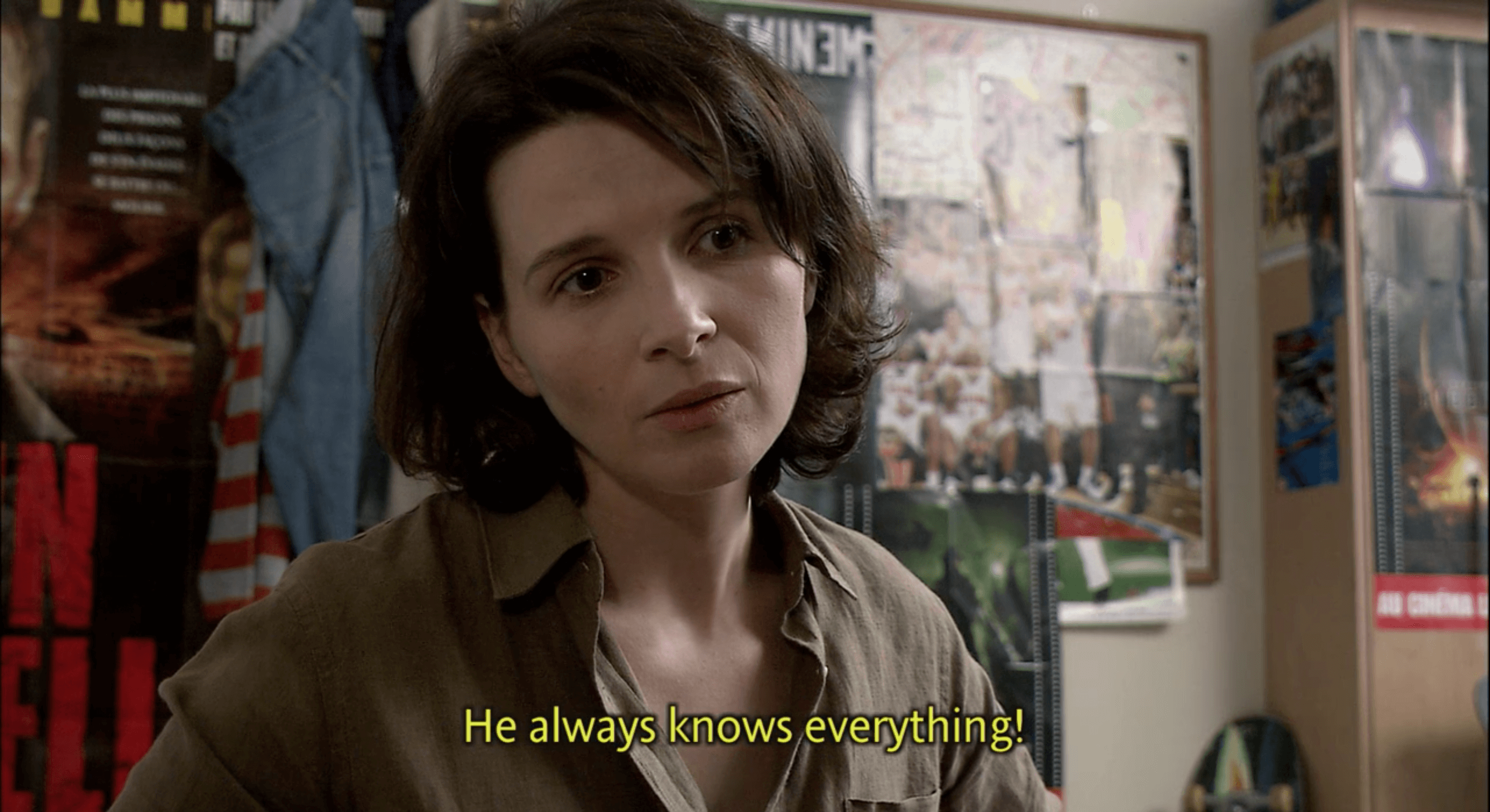
1:24:27
Pierre, the only figure we see walking away, through the bedroom window, after the husband asks the wife to dismiss the guest(s).
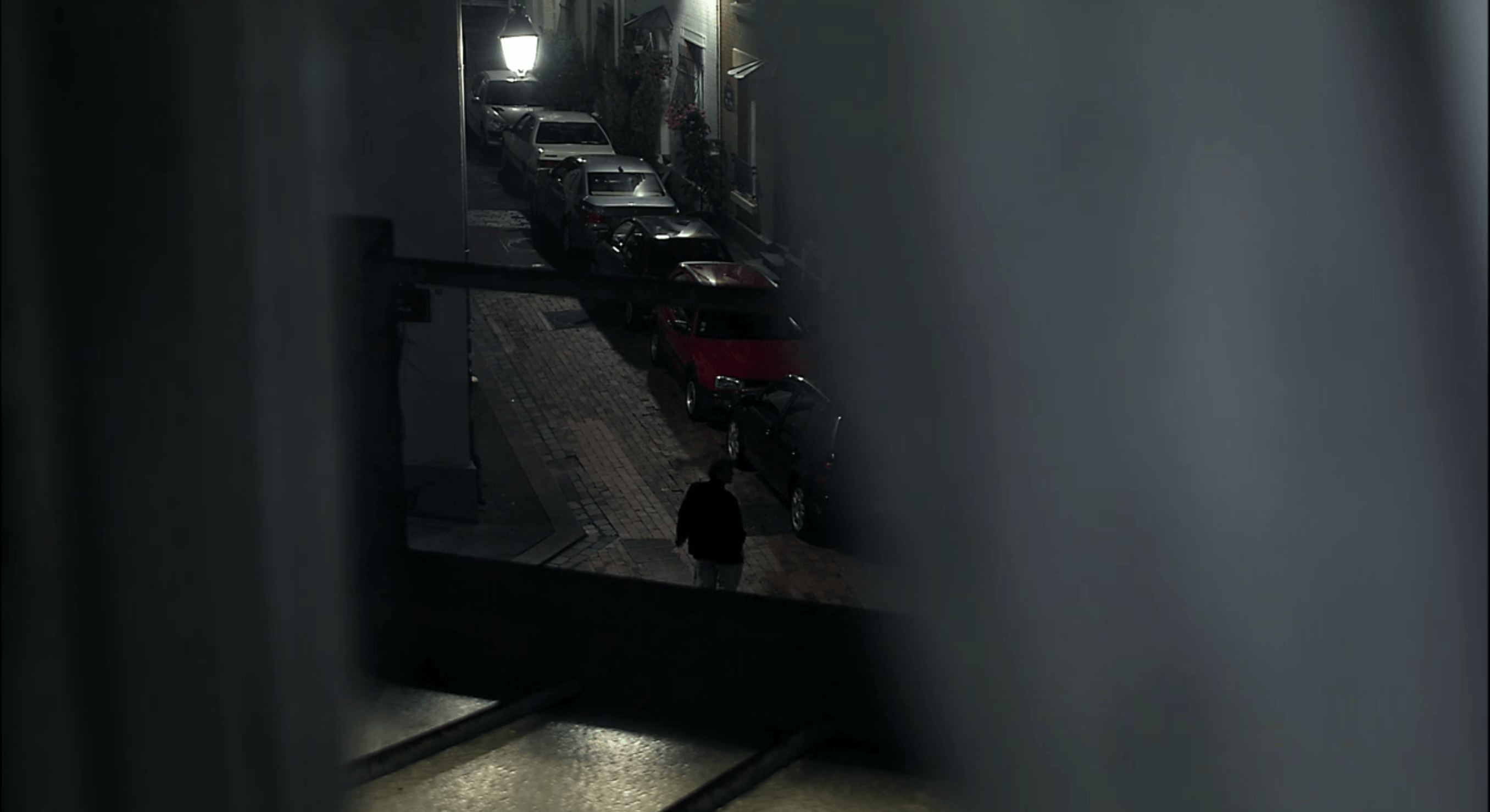
1:34:24. View of Pierre from the bedroom window
If we assume Pierre is indeed the culprit, some things start to make sense. Although, many unanswered questions still remain
Like the sequence at 0:25:45 where the doorbell rings during dinner Notice that it is Pierre that prompts his hosts to attend to the door bell. It’s not a very compelling detail, but it’s still worth noting ;
The husband goes down to open the door and there’s no one there. There’s also no cassette.
But when the husband makes his way back, on closing the door, he finds a cassette wedging
the door open. This particular scene bothered me a lot because
I couldn’t explain how it was possible. But, if you consider the possibility that the cassette came from inside the house (Pierre) then it’s completely understandable.
In Conclusion
I don’t think I’ve presented enough evidence to declare the case solved beyond any reasonable doubt. But, I do think I’ve presented a compelling case nonetheless.
For the longest time, I couldn’t move past the film because I needed answers. The answers I’ve presented here are good enough for me. And if watching this film put you in a similar disposition, I hope the answers here are enough for you too.
References
Roger Ebert writes a great review, but is mistaken about the “smoking gun”
Roger Ebert admits that he was mistaken and attempts a deeper analysis
Fin
Thanks for reading!
Revisions
January 18, 2021: Completed the article, took off the warning banner
December 05, 2020: First version published without expanding on “Why Pierre?”